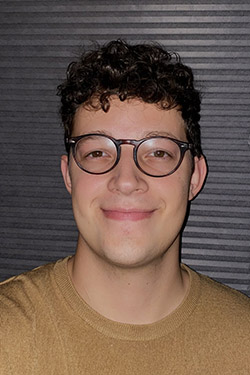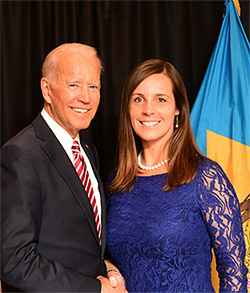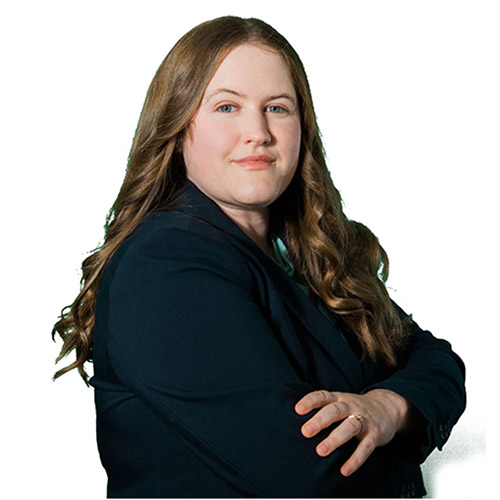Alumni Profiles

Noah DeMichele
May 2021, Political Science and International Studies majors, Economics minor
Please list the FSU clubs, societies, and organizations of which you were a member.
Student Government Association (Treasurer, then President); The Bottom Line News (News Editor); International Relations Club; Model OAS; President’s Leadership Circle; Pi Sigma Alpha; Phi Eta Sigma; Phi Kappa Phi.
Advanced Degrees? Please list degree and major.N/A
Current position/start date (please list any/all positions you would like):
I am currently enrolled in an intensive German language course in Berlin, Germany.
Explain what you do (or did) in your position(s). What skills sets are most important?
I studied international politics and economics at Frostburg and I’m most interested in conflict prevention and resolution, crisis management, and the transatlantic relationship between the US and Europe. Foreign language proficiency is a very important skill to have in the field, and I wanted to take a gap year before applying to graduate programs or the workforce, so I moved to Berlin, Germany to study German for a year. I think it’s important to have patience, keep an open mind, and explore all opportunities as you seek that first job.
What advice would you give current students about landing their first job? Please feel free to use your experiences as a reference point
Learning as I go, I’ll share some of the things I have found valuable as I go through the career search.
- The ability to write well is critical. If you are not a strong writer, become one. Your cover letters and personal statements are particularly important aspects of your application and should be poured over with a fine-tooth comb and read by a few contacts that you trust. Ensure that you tailor these letters to the position you are applying for, as well. Employers and graduate programs want to see why you want to work/study with them.
- Make sure your application materials are professionally formatted and contain zero grammatical or spelling errors.
- Apply in bunches and do not be discouraged by rejections. Politics can be a competitive field and getting that first foot in the door can be difficult. The important thing is get a foot in the door and actively network.
- In interviews, come with knowledge about the program or company and ask questions at the end. Not only will this give you valuable information, but it will show that you have researched and are truly interested in the organization. I would also suggest showing some personality in interviews. Of course, be professional and formal, but don’t be scared to show interviewers a little bit of who you are.
- Reach out to alums! Often, they are happy to give advice and it can point you in a direction which you haven’t thought of before.
What advice would you give students about choosing a career path?
I would advise students to pursue what you are interested in, and then make choices during your undergraduate studies that help advance your likelihood of succeeding in your chosen career path. That is, once you have a bit of an idea of what path you want to pursue, start thinking of what you can do now to help you later.
I am still figuring out my own career path, as politics does not have a single linear career trajectory like some other fields of study. Within the political science field, there is a plethora of subfields to explore. Identify your personal skills, areas of interest, whether you’re into local, state, national, or international politics, and talk to professionals in the field.
What do you think was most important about your FSU experience that was instrumental to your success? What would you have done differently?
I think the breadth of my experiences at Frostburg gives me the best chance to succeed when applying to graduate programs or entry-level jobs. At FSU, I had strong leadership experience, participated in several clubs and conferences related to my particular field of international relations, diversified my transcript by taking history, geography, and economics courses, and studied abroad in the United Kingdom. It seems that, often, graduate admissions offices and employers want to see that you bring unique experiences to the table and can actively contribute to their work. While strong academic performance is important, don’t forget to build your entire portfolio.
I would highly recommend seeking internships early and often in your undergraduate career. Internships help you determine if the work you think you want to do is actually what you want to do, give you practical experience to augment your theoretical education, and go a long way in proving graduate admissions offices or potential employers that you can succeed in their program or organization. Talk to your professors about possible internships in the field, ask for feedback on your resume and cover letters and apply, apply, apply.
There’s a lot of concern today about the “value” of a major in the social sciences and a “return on investment” in choosing a liberal arts university. What do you think is the value of a Political Science major in the job market today? Please note any skills, experiences, or attitudes that you think are critical to be successful.
I sometimes get discouraged because career paths in the political field are not linear like accounting or engineering may be. But this is the field I have interest in and see myself positively contributing to. I believe if you are persistent in your search and do all you can to make yourself a strong candidate, you will have success. Identify your weak points, take strides to strengthen them, and apply, apply, apply.

Tara Yurgin Mazer
Graduated May 2005; Majors: Political Science and Criminal Justice; Minor in Sociology
Current position/start date (please list any/all positions you would like):
- Director of Operations for Governor John Carney (DE)
- Senior Advisor to US Senator Al Franken (MN)
- Assistant to US Senator Joe Lieberman (CT)
- Legislative Aide to Delegate Jeff Waldstreicher (MD)
Explain what you do (or did) in your position(s). What skills sets are most important?
Working for elected officials requires many different skill sets depending on the role that you serve. I would recommend learning the priorities of your organization and how your strengths can fit into that. Perhaps you are organized or can step back to see the bigger picture, in which case you should let your strengths be known upon being hired. Collaboration on teams goes a long way, so speak up if you have ideas.
What advice would you give current students about landing their first job? Please feel free to use your experiences as a reference point
Please feel free to use your experiences as a reference point. Applying for jobs can be daunting, but you need to keep at it; don't be discouraged when you receive a rejection letter, just keep applying. Not every job that you apply for is your dream job, but you need to start somewhere and don't live beyond your means. Once you land that first job, and you feel comfortable with your duties, ask for more projects. Ask co-workers what they need help with and ask them about their career path. You will be surprised what doors open for you by chatting with people over coffee.
What advice would you give students about choosing a career path?
Make sure you pick something that will make you motivated in the morning. If you’re half in, maybe that job path isn't for you. And nothing is permanent, adults switch career paths all of the time so keep an open mind.
What do you think was most important about your FSU experience that was instrumental to your success? What would you have done differently?
Do internships and then complete more internships! I completed my internship in Annapolis with a State Senator Leo Green, which was a huge stepping stone for me. Looking back, I would have done another internship on Capitol Hill, which I ended up doing post-graduation so I could pursue a job on the Hill.
There’s a lot of concern today about the “value” of a major in the social sciences and a “return on investment” in choosing a liberal arts university. What do you think is the value of a Political Science major in the job market today? Please note any skills, experiences, or attitudes that you think are critical to be successful.
Given today's political climate, I would say a political science major is more important than ever! It's important to have people in the field with the POSC background knowledge as opposed to commentators just reporting on their feelings. Journalists can't give the whole story if they don't have the political backstory and history of an issue. Election lawyers need a POSC background to argue cases going forward. If you work for an elected official or a state agency, it's imperative to have that POSC foundation.

Jennifer Patterson Moroney
1995, Political Science and History
Please list the FSU clubs, societies, and organizations of which you were a member.
History and Political Science Honor Societies, OAS
MA in European Integration, University of Limerick, Ireland, and PhD International Relations, University of Kent at Canterbury, United Kingdom
Current position/start date (please list any/all positions you would like):
Senior Political Scientist, RAND Corporation 2003-present
Director of RAND Australia, Canberra, Australia, 2014-2018
U.S. Department of Defense, 2000 (Extended Summer Fellowship)
DFI International, 2000-2003
Explain what you do (or did) in your position(s). What skills sets are most important?
I’m a senior researcher and I am expert in US government security cooperation with foreign security forces. The most important skills in my work are the ability to connect with people, particularly government officials (and my colleagues at RAND) and knowledge of research methods.
What advice would you give current students about landing their first job? Please feel free to use your experiences as a reference point
Find a few good mentors – more than one, fewer than five- to help and advise you on professional and academic development
What advice would you give students about choosing a career path?
Get experience working in a variety of sectors- public, private, academic. Get into a topic is a deep way so that you have depth. Ensure that you are able to develop transferrable skills, such as project management and leadership.
What do you think was most important about your FSU experience that was instrumental to your success? What would you have done differently?
Dr. Joan Andorfer and a few of her colleagues provided the support I needed to get a good start. They all encouraged me to go to graduate school and to get my PhD. Also, the FSU Ireland study abroad experience was life-changing in many ways. I met my husband, Kevin, that semester. Studying abroad jump-started my love of international travel, which I continue to this day. I’ve visited 70 countries, some many, many times over, and have lived on three continents!
There’s a lot of concern today about the “value” of a major in the social sciences and a “return on investment” in choosing a liberal arts university. What do you think is the value of a Political Science major in the job market today? Please note any skills, experiences, or attitudes that you think are critical to be successful.
There are policy jobs in government that really benefit from political scientists, research and analysis organizations like RAND and other Federally-Funded Research and Development Centers, and of course private sector contractors. You have to have an inquisitive mindset and be willing to work hard as the market can be flooded. Mentors and networking are both very important.

Kayla M. Woodside
Fall 2018 graduate with a double major in legal studies/social science and a minor in political science.
Please list the FSU clubs, societies, and organizations of which you were a member.
I was a board member for SPECTRUM the LGBTQIA+ organization on campus and a member of SHRM (Society for Human Resource Management). I was accepted into several honor societies: Phi Theta Kappa, Phi Kappa Phi, and Pi Sigma Alpha (the political science honor society on campus).
Advanced Degrees? Please list degree and major.
I am currently pursuing my masters in library and information science.
Current position/start date (please list any/all positions you would like):
In April of 2019, after graduating, I accepted a role as a Docketing Assistant for an intellectual property law firm.
Explain what you do (or did) in your position(s). What skills sets are most important?
As a docketing assistant, it is my responsibility to track and monitor foreign and domestic deadlines for patent and trademark prosecution based on current rules and laws. I process all incoming and outgoing correspondence from clients, foreign associates, and government agencies. On a daily basis I record and validate case data, run reports, respond to emails, create new client profiles, manage transfers of client portfolios, work with document management systems, and read all incoming mail.
My role, and that of other legal assistants, requires an extreme attention to detail. One must have the ability to time manage, be self-educating, clearly communicate with people from diverse backgrounds, and balance their workload while prioritizing urgent needs. Strong reading and writing skills are necessary, as well as proficiency in outlook, excel, word, and adobe acrobat.
What advice would you give current students about landing their first job? Please feel free to use your experiences as a reference point.
When first applying to jobs it can feel exhausting and sometimes discouraging. I would encourage students to be open to opportunities that are outside of their comfort zone or desired field. I would suggest looking at the job descriptions for a variety of positions and checking to see their skill sets match the needs of that role. When I applied to my current position I knew nothing about intellectual property law, or what a docketing assistant even was. I applied because I had the skills to meet the basic job requirements and a background in legal knowledge from my bachelors.
The goal is to get the interview. It’s important to spend time researching what successful cover letters and resume’s look like. If your resume or cover letter stands out, you will likely receive a screening phone call. Being prepared for an interview is key. Before an interview practice interview questions and watch videos on what employers look for in answers. Take the time to research the company you are interviewing for, they want to know that you understand their goals and values. Employers have seen your resume, they understand you just graduated, the goal is to convince them that you are a good fit and worth the time and energy to train you.
What advice would you give students about choosing a career path?
There is a great emphasis in college on picking the perfect career path, when in reality, the career path often picks you. Students should explore a wide range of interests during the first year or two of enrollment. Having a narrow range of interests limits the scope of what is available to pursue. If a particular career path sparks an interest, I would recommend having conversations with people who work in that field. Professionals in your desired field can provide personal experience, set expectations for the position, and outline the specific skills needed to succeed. This can help in determining if a particular career path is the right fit for you.
